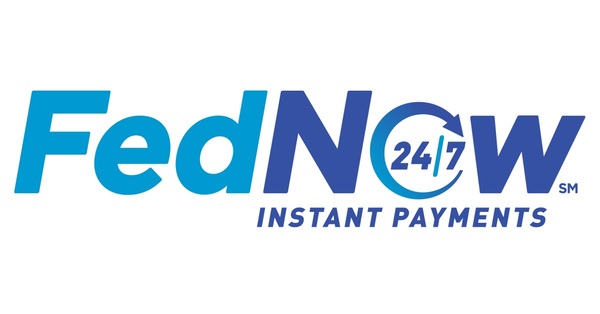
–>
April 1, 2023
The scene is as old as history. An individual fleeing persecution wants to cross a border. His or her life depends on being able to bribe a border guard, with some fungible valuable item: whether gold, cash, silver, diamonds, etc. Life depends on it.
‘); googletag.cmd.push(function () { googletag.display(‘div-gpt-ad-1609268089992-0’); }); }
If the trade is prevented, then all hope is lost.
From the dawn of time, currency was the one thing that governments had difficulty tracking. I am not considering checks, bills of credit, something written. Those are easy to trace. I am talking about real currency. Currency in one’s hand, cash pressed in the flesh.
Bribery was always the province of the dishonest, but it often became the last resort of the honest: a war refugee wanted to cross a border before an invading army swoops in, a Jew wanted to evade a Nazi patrol, an Irishman wanted to get out of Ireland one step ahead of the Crown’s authorities.
‘); googletag.cmd.push(function () { googletag.display(‘div-gpt-ad-1609270365559-0’); }); }
Cash became the vehicle of freedom.
So what happens when that option is removed… by digital currency? What happens when fungible cash is made null and void?
Long-awaited Fed digital payment system to launch in July — CNBC
Yes, the Fed is finally converting to digital currency with the FedNow Service. We are told it is only for banks… now. But how soon after that will America go totally cashless?
And we are told that this is long awaited, as if there was a public clamor for it — didn’t you know — so it must be good. No need to worry, right?!
Of course, we are told that crime will cease; and to be sure, a lot of crime will cease.
‘); googletag.cmd.push(function () { googletag.display(‘div-gpt-ad-1609268078422-0’); }); } if (publir_show_ads) { document.write(“
Without cash, drug dealing will be more difficult. Fencing stolen goods will become impossible. Simple robbery will be pointless. “Your money or your life” will become a thing of the past. Pickpockets will lose their livelihood.
The criminal element may be forced to barter.
Digital technology is changing many industries, but it’s also changing the criminal economy. Find out how one pickpocket fears his craft won’t survive the digital age. — eachandother
The ability to evade taxes will evaporate, once every transaction is digitally traceable. Illegal aliens will no longer be able to get work off the books. Many will leave the country.
There will be ways around this at first. Money cards will be traded, but those too are traceable. Credit cards are already traceable, and have limited use.
Gold and silver will become more valuable. But how does one pay for a loaf of bread with gold? Small trades will become impossible.
Oh! but some will claim: Trading networks will be set up.
Yes! They certainly will be set up. But networks are easy to infiltrate and will sooner or later be detected. Game over.
The cold hard anonymity of cash was the one freedom that the most brutal of dictatorships could not control. They tried to, but couldn’t.
 If that Irishman had enough copper in his pocket, he could hop that departing boat from Cork and evade the constabulary to settle free in another land. If that Jew had some coins, he or she might evade that Nazi and live another day.
If that Irishman had enough copper in his pocket, he could hop that departing boat from Cork and evade the constabulary to settle free in another land. If that Jew had some coins, he or she might evade that Nazi and live another day.
The effect will be brutally efficient once cash is removed. And, the immediate result will seem good. Street crime will drop. Illegal trafficking will dwindle. The rich may finally have to pay a fair share of taxes — well, some of the rich. The really rich will still evade by legal trickery.
No more hiring illegals for a cut-rate wage. One will have to hire American citizens at a good salary, and on the books, paying FICA taxes.
The result will be a total loss of privacy and freedom.
No more kid on the corner selling lemonade.
Health Dept. Shuts Down Kids’ Lemonade Stand in Richmond
A police officer and health department worker told the kids behind 4k Lemonade that they had five business days to obtain a business license and file any excise taxes — NBC 4
With a cashless society, the kids won’t even be able to contemplate such a nefarious criminal enterprise.
Your eating habits will be deduced from your now traceable grocery purchases (They already are, if you use supermarket discount cards), and your health insurance will be notified so they can increase your premiums accordingly.
And all of this will arise when digital currency is introduced. There will be no evasion. Comply or die.
…no man might buy or sell, save he that had the mark — Rev 13:17
Of course, millions have been acculturated to accept this already. They use apps to plan their diets, they post Facebook accounts with information available to the world that a previous generation would not have even told their own parents.
Formerly, a teenager on a parent-enforced diet could buy a soda and burger on the sly; but now the high-cholesterol adult will not evade the government health ministry.
California county closes In-N-Out because burger chain refuses to enforce COVID-19 vaccination rules — Fox6
They tyranny was getting worse, but there were always ways around it. No longer.
Buenos Aires had a cottage industry of off-the-grid closed door restaurants. They probably never enforced COVID rules. But when cashless comes…
There were always holdouts: people who would not buy a smartphone on purpose, those who insisted on paying in cash, who read maps instead of using Waze, who avoided social media, who used VPNs, if they were technically minded.
Could the RESTRICT Act Criminalize the Use of VPNs? — Reason
But with digital currency, this will all end. The cash economy, the last holdout of free men, will die.
And the first step will start in July, and the media is warning no one. After all, the tyranny is long awaited. No need to worry.
Image: Governors of the Federal Reserve
<!– if(page_width_onload <= 479) { document.write("
“); googletag.cmd.push(function() { googletag.display(‘div-gpt-ad-1345489840937-4’); }); } –> If you experience technical problems, please write to [email protected]
FOLLOW US ON
<!–
–>
<!– _qoptions={ qacct:”p-9bKF-NgTuSFM6″ }; ![]() –> <!—-> <!– var addthis_share = { email_template: “new_template” } –>
–> <!—-> <!– var addthis_share = { email_template: “new_template” } –>





